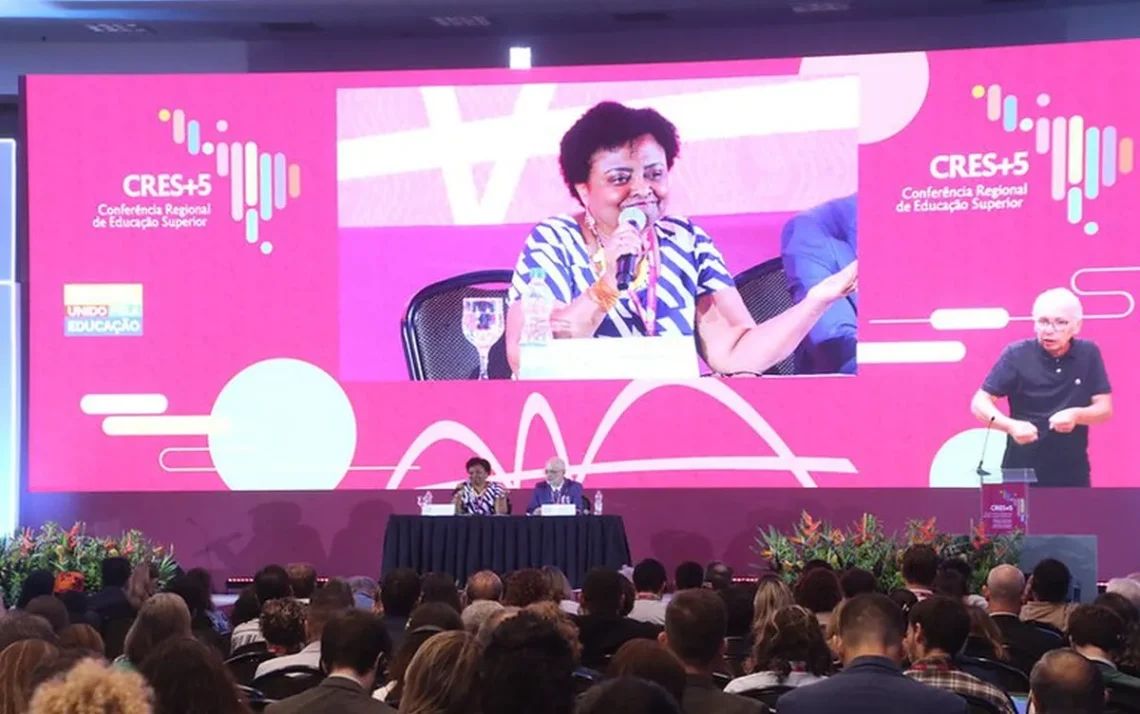Debate on higher education for equitable, inclusive regional integration in Latin America and the Caribbean with focus on ethnocultural diversity and social justice.
Obtaining a higher education is essential in today’s competitive job market. Higher education not only provides individuals with specialized knowledge and skills in their chosen field, but also opens up a wide range of opportunities for career advancement and personal growth. Whether pursuing a bachelor’s degree, master’s degree, or PhD, higher education plays a crucial role in shaping future leaders and innovators.
Furthermore, education is a lifelong journey that goes beyond higher learning. It encompasses a variety of learning experiences, including formal and informal tertiary education. Investing in education at all levels can lead to a more fulfilling and successful life. Remember, the pursuit of knowledge and personal development is a continuous process that never truly ends.
Advancing Higher Education in Latin America and the Caribbean
Developing higher education in Latin America and the Caribbean for the 21st century involves addressing the tremendous ethnocultural diversity and various social backgrounds present in the region. It requires a commitment to ‘emancipatory regional integration,’ as emphasized by Professor Nilma Lino Gomes during the CRES+5 conference in Brasilia.
Challenges in Higher Learning
Nilma highlighted the complex social relations shaped by class divisions, political dynamics, and colonial legacies that hinder progress in higher education. These entrenched educational standards perpetuate inequalities among teachers and students and limit the inclusion of diverse forms of knowledge.
Promoting Inclusive Tertiary Education
Efforts to revitalize higher education through affirmative policies like the quota system for marginalized groups in Brazil have been slow but necessary steps towards equitable and inclusive education. However, the road to achieving educational standards that truly embrace diversity is still long.
The Role of Democratic Governance
Nilma stressed the importance of democratic governance in shaping a higher education system that respects social justice and tackles ideological polarization. The integration of different perspectives is crucial in moving towards a more inclusive educational environment that reflects the region’s rich cultural tapestry.
Building Bridges for Social Transformation
While facing challenges rooted in historical injustices like indigenous genocide and colonial oppression, the higher education sector must confront market fundamentalism and religious conservatism. By fostering a dialogue that promotes social justice and transformation, the region can work towards a future where education is truly empowering for all.
Promoting Ethnocultural Diversity in Education
As the CRES+5 conference continues to advocate for a more inclusive higher education system, it becomes clear that embracing ethnocultural diversity is key to reshaping educational paradigms. By challenging existing norms and fostering a climate of acceptance, Latin America and the Caribbean can pave the way for a more equitable future in education.
Ensuring Equitable Educational Standards
Through affirmative policies and a commitment to democratic values, the region can overcome barriers to social relations and build a higher education system that serves all individuals regardless of their social backgrounds. By prioritizing inclusion and diversity, Latin America and the Caribbean can create a brighter future for education.
Paving the Way for Regional Integration
By navigating through ideological differences and advocating for social justice, the higher education sector can play a pivotal role in the ongoing process of regional integration. Through collaboration and dialogue, Latin America and the Caribbean can create a more cohesive and inclusive educational landscape that benefits all sectors of society.
Empowering Higher Education for a Diverse Future
As discussions at CRES+5 continue to unfold, it is evident that the future of higher education in Latin America and the Caribbean hinges on embracing diversity and promoting social justice. By overcoming historical hurdles and embracing inclusive policies, the region can pave the way for a transformative educational experience for all.
Fonte: © MEC GOV.br






Comentários sobre este artigo